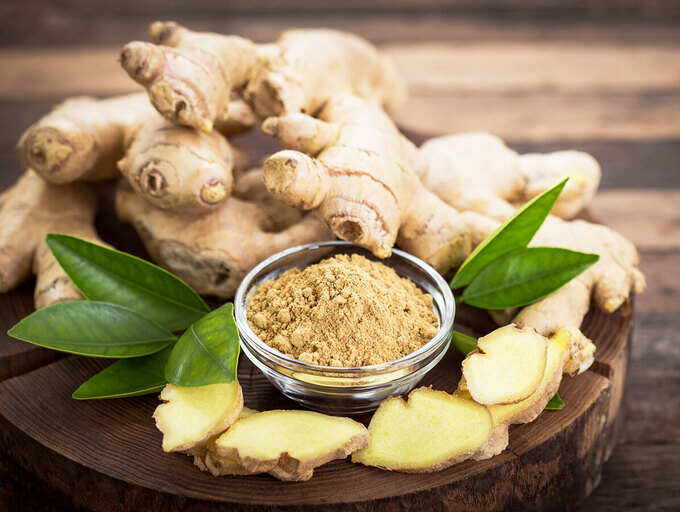OverviewThere are different types of arthritis, but they can all cause pain. Some natural remedies may help you manage mild symptoms, particularly if you use them alongside other treatment options.
Certain herbs may have anti-inflammatory properties that can help with rheumatoid arthritis (RA) or osteoarthritis (OA).
Still, there’s a lack of scientific evidence to support the use of many of these options, and some may have negative effects.
Before opting for “natural” remedies for arthritis, be sure to talk to a doctor first, as some options may interact with existing medications.
1. Aloe vera
Aloe vera is one of the most commonly used herbs in alternative medicine. It’s available in many forms, such as pills, powder, gels, and as a leaf.
Known for its healing properties, it’s popular for treating small skin abrasions, such as sunburn, but it may also help with joint pain.
Possible benefits includeTrusted Source the following:
- It has anti-inflammatory properties.
- It doesn’t have the negative gastrointestinal effects of nonsteroidal anti-inflammatory drugs (NSAIDs), commonly used for arthritis pain.
Topical application: You can apply a gel directly to the skin.
Oral medication: Some researchersTrusted Source have suggested that taking aloe by mouth may help relieve osteoarthritis pain.
More studies are needed to confirm that these treatments are beneficial.
The National Center for Complementary and Integrative Health (NCCIH)Trusted Source notes that aloe vera use is likely to be safe, but some people have side effects when they take it by mouth.
It may lower glucose levels and interact with some diabetes medications.
2. Boswellia
Practitioners of traditional and alternative medicine use Boswellia serrata, also called frankincense, for its anti-inflammatory properties. It’s derived from the gum of Boswellia trees, which are indigenous to India.
According to a reviewTrusted Source published in 2011, boswellic acid appears to have anti-inflammatory effects that could help people with RA, OA, and gout.
Results from human trials have suggested that frankincense capsules may help improve pain, function, and stiffness due to OA. However, these were small studies. More research is needed.
Doses of up to 1 gram a day of boswellia appear to be safe, but high doses can affect the liver. It’s available in tablet form and topical creams.
3. Cat’s claw
Cat’s claw is another anti-inflammatory herb that may reduce swelling in arthritis. It comes from the bark and root of a tropical vine that grows in South and Central America.
People have traditionally used it as an anti-inflammatory and to boost the immune system.
The Arthritis Foundation notes that, like many conventional drugs for rheumatoid arthritis, cat’s claw suppresses tumor necrosis factor (TNF).
They cite a small 2002 study in which cat’s claw was shown effective in reducing joint swelling by over 50 percent in 40 people with RA.
However, possible side effects include:
- nausea and dizziness
- low blood pressure
- headache
You shouldn’t use this herb if you:
- use blood thinners
- take medications that suppress the immune system
- have tuberculosis
According to the NCCIH, some small studies have looked at cat’s claw for rheumatoid arthritis, but more research is needed.
You can find cat’s claw online.
4. Eucalyptus
Eucalyptus is a readily available remedy that people use for a wide range of conditions. Extracts of eucalyptus leaves feature in topical remedies to treat arthritis pain.
The plant leaves contain tannins, which may help reduce swelling and pain related to arthritis. Some people follow up with heat pads to maximize the effect.
Eucalyptus aromatherapy may help ease the symptoms of RA.
Always dilute an essential oil with a carrier oil before use. Use 15 drops of oil with 2 tablespoons of almond or another neutral oil.
Be sure to test yourself for allergies before using topical eucalyptus, which is referred to as a patch test.
Put a small amount of the product on your forearm. If there’s no reaction in 24 to 48 hours, it should be safe to use.
5. Ginger
Many people use ginger in cooking, but it may also have medicinal benefits. The same compounds that give ginger its strong flavor also have anti-inflammatory properties, studies have found.
Some researchers say ginger could one day be an alternative to nonsteroidal anti-inflammatory drugs (NSAIDs).
People have long used ginger in traditional medicine to treat nausea, but you can also use it for rheumatoid arthritis, osteoarthritis, and pain in the joints and muscles.
The authors of one 2016 review article believe that, in the future, ingredients in ginger could form the basis of a pharmaceutical treatment for rheumatoid arthritis. It could not only help manage symptoms but also help prevent bone destruction.
Here are some ways of consuming ginger:
- Make tea by infusing tea bags or fresh ginger in boiling water for 5 minutes.
- Add powdered ginger to baked goods.
- Add powdered ginger or fresh ginger root to savory dishes.
- Grate fresh ginger onto a salad or stir fry.
Check with a doctor before increasing your intake of ginger, as it can interfere with some medications, such as warfarin (Coumadin), a blood thinner.
6. Green tea
Green tea is a popular beverage. The antioxidants it contains may help fight the inflammation that occurs with RATrusted Source or OATrusted Source.
You can take green tea as:
- a beverage
- powder (matcha) for sprinkling on food or adding to smoothies
- supplements
While scientists have found evidence that extracts or specific components of green tea may have an effect on arthritis, it’s unclear whether the concentration of active ingredients in a cup of tea will help relieve symptoms.
That said, it’s likely to be safe for most people. As a beverage, it is a healthier option than some coffees, soda, and other sweetened drinks, as long as you don’t add sugar.
More research is needed to confirm that green tea can help reduce inflammation and to find out which form and dose would be most effective.
You can find a selection of green tea options online.
7. Thunder god vine
Thunder god vine (Tripterygium wilfordii) is an herb. It has long been used in Chinese, Japanese, and Korean medicine to manage inflammation and excessive immune activity.
This could make it a suitable treatment for rheumatoid arthritis and other autoimmune diseases.
You can use it:
- by mouth, as a dietary supplement
- as a topical treatment, applied directly to the skin
However, it can have very serious negative effects, such as:
- gastrointestinal problems
- respiratory infections
- hair loss
- headache
- a skin rash
- menstrual changes
- changes in sperm that could reduce fertility in males
- after 5 years or more of use, there may be a reduction in bone density
Many medications can interact with thunder god vine, especially those commonly used for RA and other autoimmune diseases.
Extracts from the wrong part of the vine can be toxic. With this in mind, it’s also important to remember that the Food and Drug Administration (FDA) doesn’t regulate the production or sale of natural remedies.
You can’t always be sure exactly what a product contains, and if thunder god vine herb is prepared incorrectly, it can be deadly.
The NCCIH says there’s not enough evidence to prove that thunder god vine is safe or effective for treating arthritis.
It’s important to talk to your doctor about this herb. There are other treatment options available that have been shown to be effective with less risk.
8. Turmeric
Turmeric is a yellow powder made from a flowering plant. It adds flavor and color to sweet and savory dishes and teas.
Its main ingredient, curcumin, has anti-inflammatory properties. It has long played a role in traditional Ayurvedic and Chinese medicine. It may help with OA, RA, and other arthritic conditions.
Turmeric is available:
- as a powdered spice to add to dishes
- in tea bags
- as supplements that are taken by mouth
More studies into the safety and effectiveness of turmeric are needed. The NCCIH notes that it’s likely safe for most adults, although high doses or long-term use may result in gastrointestinal upset.
9. Willow bark
Willow bark is an ancient treatment for pain and inflammation. You can use it either as a tea or in tablet form.
Some researchTrusted Source says it may help relieve joint pain related to OA and RA. However, results have been conflicting, and more studies are needed. Also, it may not be safe for everyone.
Common side effects include:
- stomach upset
- high blood pressure
- an allergic reaction, especially if you have an allergy to aspirin
- stomach ulcers and bleeding in the case of an overdose
You should ask your doctor before using willow bark, especially if you’re using blood thinners or have a stomach ulcer. Do not take it if you’re allergic to aspirin.
You can purchase willow bark products online.
Other complementary optionsHerbal supplements are not the only complementary approaches to arthritis pain relief.
Experts from the American College of Rheumatology and the Arthritis Foundation recommend the following:
- weight management
- exercise, including tai chi and yoga
- cold and heat treatment
- stress management
- a healthy diet
- acupuncture
Source: Healthline


